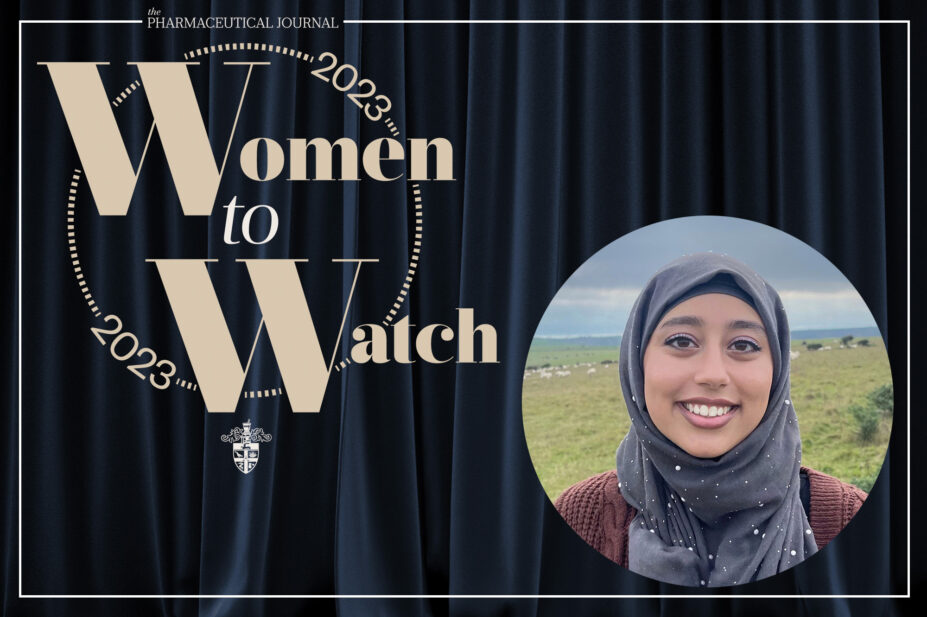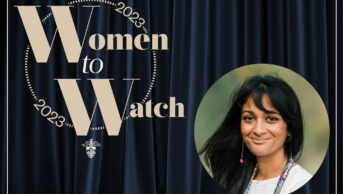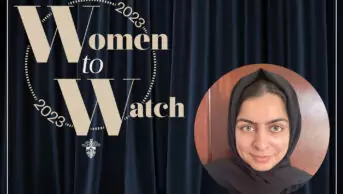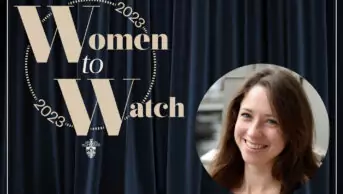
Abeer Aamir/The Pharmaceutical Journal
The classmate who nominated final-year pharmacy student Abeer Aamir described her as “working tirelessly to ensure all individuals have an equal opportunity to succeed in pharmacy”.
This is echoed in the lengthy list of projects Aamir is involved in to promote equality, diversity and inclusion within the profession. These initiatives address everything from underrepresentation of minority groups in pharmacy to unconscious racism within the MPharm curriculum. Our judges recognised that she has laid the foundations for change at her institution — the University of Brighton — that will continue long after she graduates.
Originally from Toronto, Canada, Aamir’s interest in the profession began when she worked in a community pharmacy at the age of 16 years. After initially volunteering for a month or two, she was offered a job.
Aamir then spent two years at Ryerson University in Toronto, Canada studying biology where, through her job in a community pharmacy, she became interested in the public health response to the country’s opioid crisis. She volunteered for the Canadian Students for Sensible Drug Policy to advocate for treating addiction as a healthcare issue.
“It was very common to see people overdosing — I used to carry a naloxone kit in my bag. I ended up becoming registered to teach people how to use naloxone,” she explains.
Aamir’s interest in framing substance misuse as a public health issue rather than a criminal justice issue, is one of the reasons why she moved to the UK in 2020 for an MPharm degree at the University of Brighton — to forward her interest in legislation and drug policy.
We need to learn to be comfortable with being uncomfortable and ask questions, breaking down those barriers
It was her difficult first year in the UK that drew her attention towards equality, diversity and inclusion issues, Aamir explains. Arriving here during the COVID-19 pandemic, she assumed she would be able to get part-time work in a community pharmacy with her prior experience, but doors were not opening.
“It was really frustrating for me as someone coming from another predominately English-speaking country that I’m still being treated like this and I started to wonder what that was like for someone not in my position,” she says.
Aamir then saw a position advertised for an ‘inclusive practice partner’ at the university, which involved going through lecture materials and advising teaching staff on how to make the curriculum more inclusive. Bringing her perspective as a first-generation Pakistani-Muslim woman, she held the role for three years.
Initiatives she introduced as part of her role included a skin workshop to learn how to identify different conditions on a variety of skin tones. She pushed for more diversity in lecture materials, including having a variety of ethnicities, genders and other protected characteristics included as case studies to challenge students’ perspectives of what “regular” patients looks like.
Another workshop enabled students to talk to a former substance misuser as a way to address unconscious bias and stigma. She pushed for lectures to include materials on acknowledging students’ own internal unconscious bias and learning that diseases that primarily affect people of colour are generally taken less seriously and can lead to poorer health outcomes.
“My point of view was how can we humanise all patients as much as possible and, as a healthcare professional, understand where my patients are coming from to help me build a better relationship with them,” she says.
“We need to learn to be comfortable with being uncomfortable and ask questions, breaking down those barriers.”
Growing up in Canada she experienced so many different types of people and cultures that she admits moving to the UK was a bit of a shock.
“It was so different and I wasn’t really seeing people who looked like me and that was a bit of a catalyst,” she says, adding that the isolation she experienced when she first arrived was another reason she became so involved in student organisations.
“I was stuck in my little studio flat for a year and I wasn’t able to build up that new support system as I had hoped, but it was also the push I needed to become independent and it motivated me to do things on my own terms,” she adds.
Aamir is also an active member of the British Pharmaceutical Students’ Association, driving renewed interest in the organisation among her peers. Most recently, she won the 2023 BPSA David Kearney Award Winner for her work in the equality, diversity and inclusion field.
While she does not know what exactly she wants to do with her pharmacy degree, Aamir says she definitely wants to work on social inequalities within the pharmacy sector.
“I want people to be empowered by their profession and to feel part of their profession,” she says. “There’s so many interesting careers you can have with a pharmacy degree and I wanted people to take ownership of that.”
Panel comments
“An influential woman who has challenged systemic racism through absence of diversity in education.”
- Meet the rest of The Pharmaceutical Journal’s Women to Watch 2023 here


